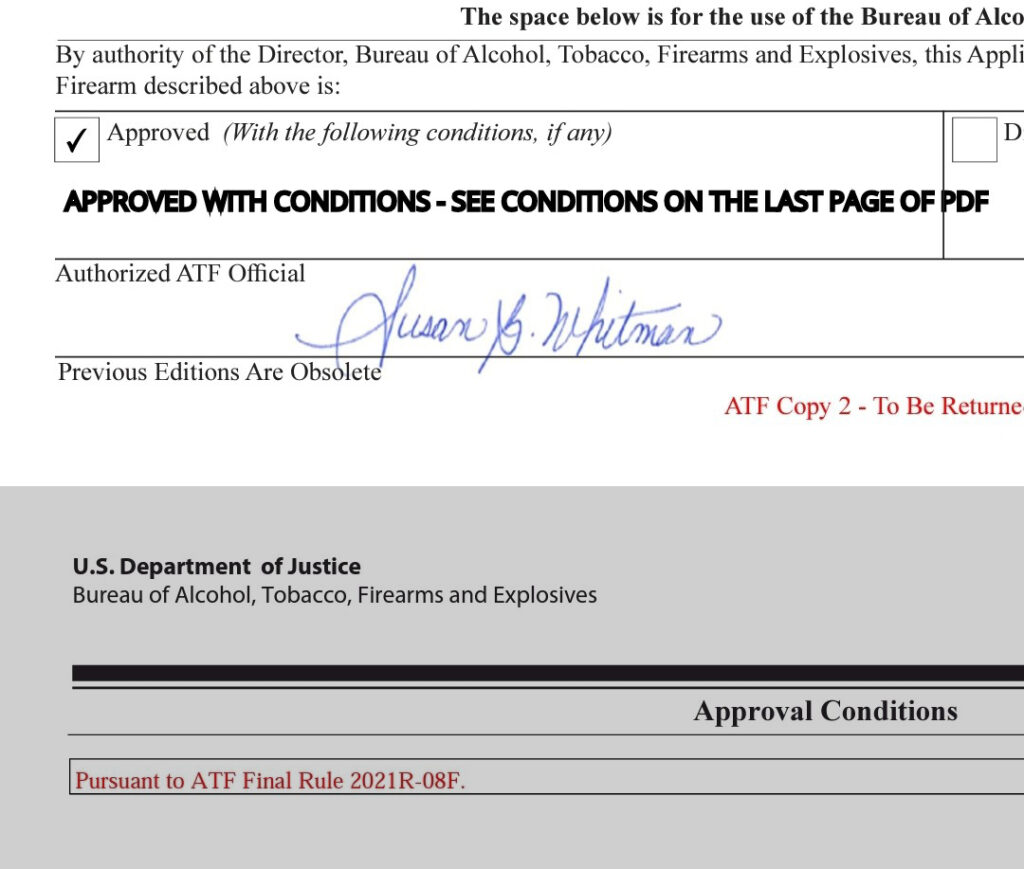 The ATF recently announced a number of changes to the way they process NFA applications.
The ATF recently announced a number of changes to the way they process NFA applications.
Details of the changes can be found in the FAQ section of eForms when you log into your account.
In online forums, many have reacted by stating that the ATF is giving preferential treatment to individual applicants and questioning whether trusts remain the preferred method of NFA item ownership.
I assure you that they do. Trusts continue to offer usage, asset protection, and estate planning benefits that individual ownership cannot provide.
As for the changes themselves, the ATF describes them as follows:
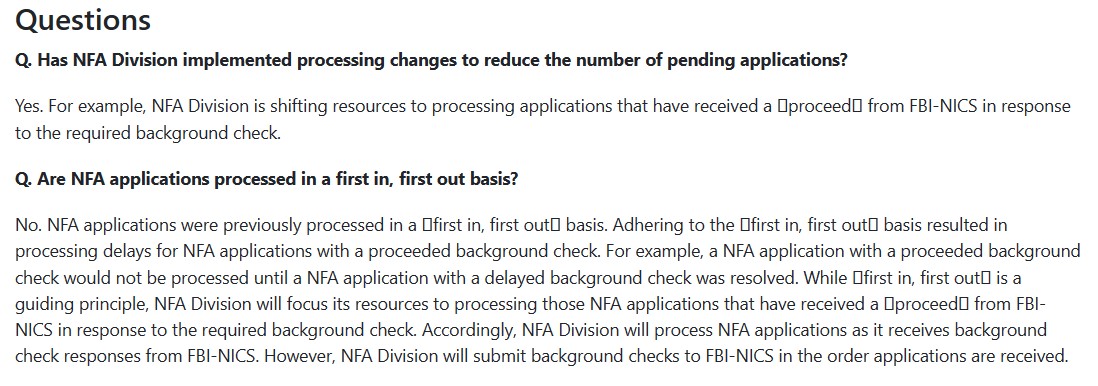
These changes seem to be working. We have already started to see dramatic results as some applicants are reporting turnaround times of weeks or even days for recently submitted forms.
But what about trust applicants? The ATF has this to say:
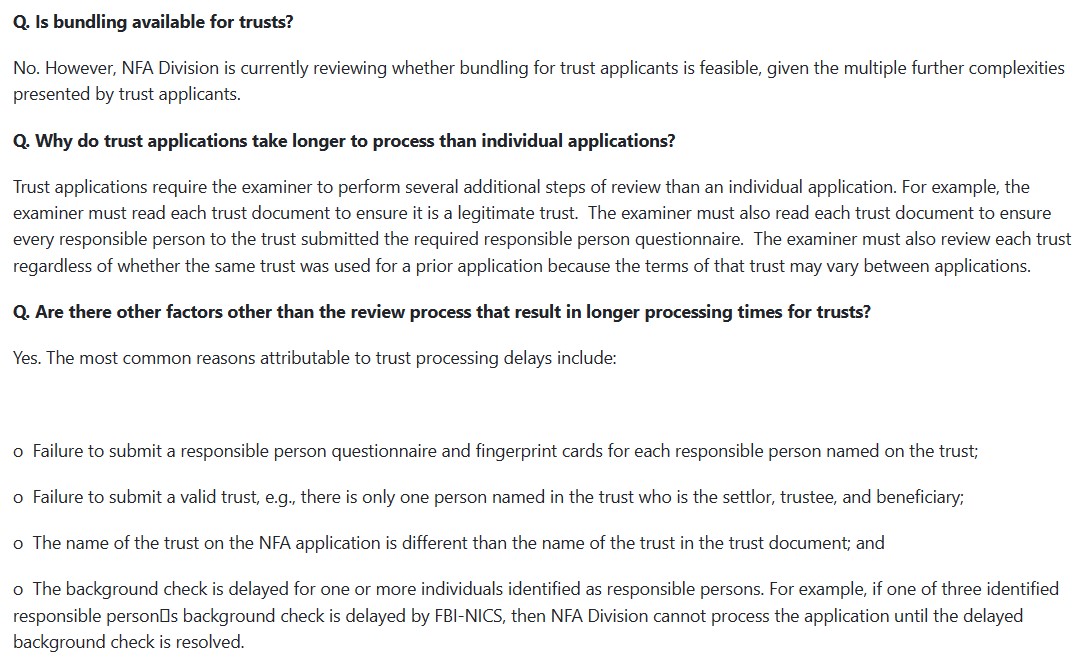
So does that mean the changes offer no benefits to trust applicants? Not at all! To borrow a phrase from economics, a rising tide lifts all boats. In fact, one of my trust client with a squeaky-clean record and a unique name reported that they applied for 6 suppressors using my trust and they were approved in 24 hours. While I do not expect this to be common, it does illustrate my point perfectly.
As for the list of factors that could result in trusts taking longer, let’s look at them one at a time. Because, when using a properly prepared NFA trust, such as the one I provide, where the owner of the trust is given proper guidance and assistance, most of the factors listed are mitigated or completely eliminated.
For example:
- When they see the same trust from the same attorney over and over again, which is true when using my trust, they do not have to read the entire document every time but can rather quickly review the pertinent sections to determine responsible persons, etc;
- The guidance I provide on the schedules themselves make it clear who needs to submit a responsible person questionnaire, etc., reducing errors; and
- By following my advice regarding minimizing responsible persons, most trust applications also only have a single background check just as is the case with individual applications.
And even if the trust review process itself does make trust applications take longer than individual applications, once the background check is sent to the FBI, the ‘approval upon proceed‘ improvements will equally benefit trust applicants.
Additionally, if many individual application approval times are now to be measured in days, then I would expect many trust applications to be reduced to weeks.
Over the next few months, we will see how the process changes actually impact trust applications. But do not let the ATF or naysayers deprive you of the ability to share and easily pass-on your NFA items merely for a few weeks’ quicker approval.

 During the last week of February, eForms was down for several days, affecting submissions from FFLs and gun-owners alike.
During the last week of February, eForms was down for several days, affecting submissions from FFLs and gun-owners alike.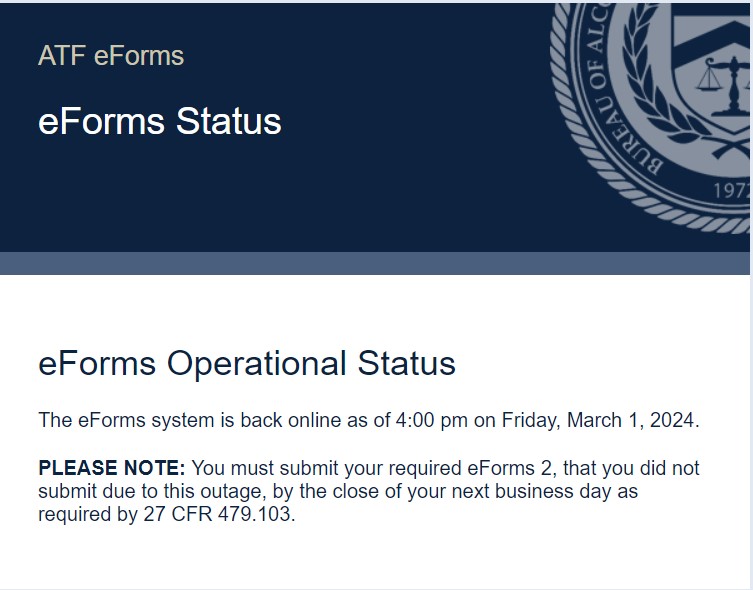
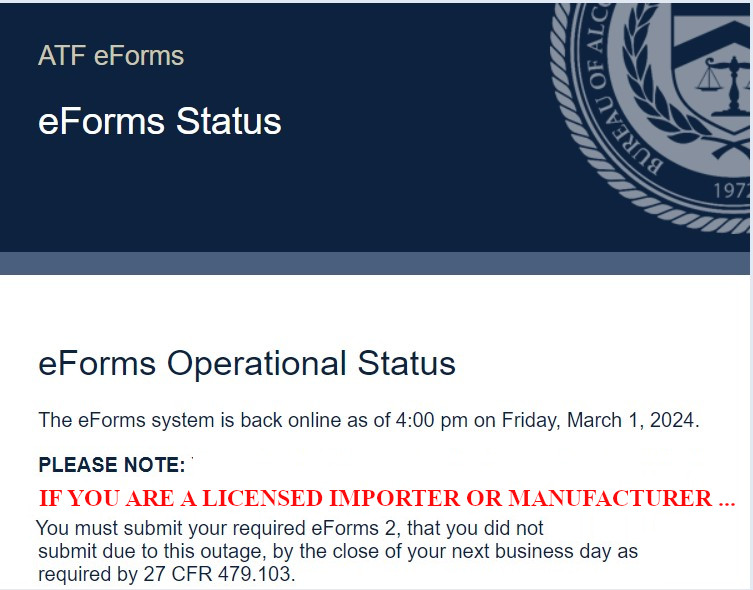

 When those who applied for a tax-free amnesty form 1 registration pursuant to ATF Final Rule 2021R-08F began to receive approvals, I posted an
When those who applied for a tax-free amnesty form 1 registration pursuant to ATF Final Rule 2021R-08F began to receive approvals, I posted an 